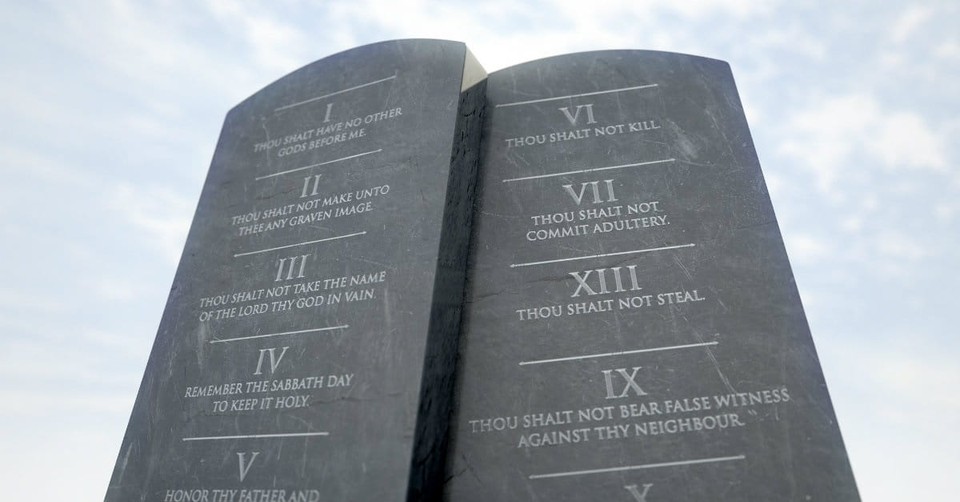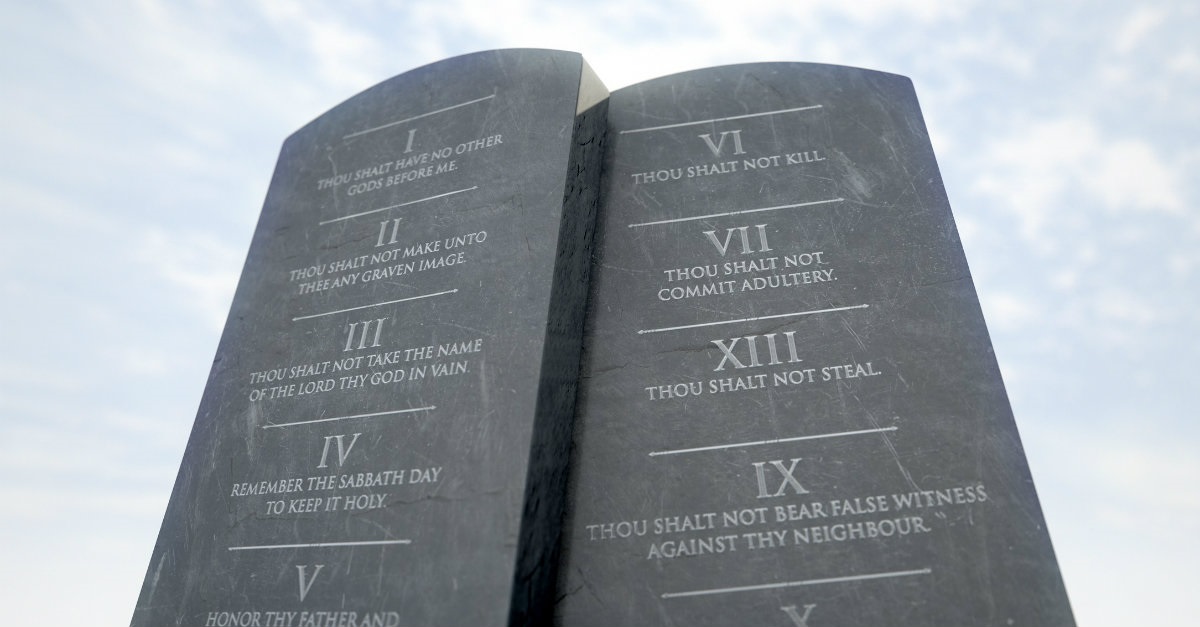Does the Death Penalty Violate the Ten Commandments?


Pope Francis pronounced this week that the death penalty is “inadmissible,” changing officially the Roman Catholic Church’s teaching on capital punishment. He had previously called for the abolition of the death penalty worldwide in 2016. The updated Catechism of the Church now regards capital punishment as “an attack on the inviolability and dignity of the person.”
According to the Pope, the mandate to oppose the death penalty comes from the Ten Commandments; “The commandment ‘You shall not kill’ has absolute value and applies to both the innocent and the guilty.” Some may wonder, then, whether consistent Christianity ought to, as the Pope says, mandate moral and political objection to capital punishment in all circumstances.
Let me first say where I agree with the Pope. He is absolutely right about the value of human life. I am glad that he has spoken up against a culture of death that sees life as, in his words, “disposable.” He is also right about the church’s responsibility to prisoners, to remember those who are jailed, to minister to them, and to work against policies that violate human dignity or harden criminals in their criminality.
That said, I cannot agree with Pope Francis that the death penalty is, in all circumstances, a violation of the command not to murder.
There is, of course, a stream of Christian thought that consistently opposes the death penalty. This is the pacifist tradition, represented in many places in the ancient church and in, for example, Anabaptist churches. The pacifist view sees all killing as morally wrong, under all circumstances. This view opposes not only capital punishment but also war or military action. This tradition would forbid Christians from serving in the military or from authorizing lethal action as civil magistrates with responsibility for military or police forces. At least since Augustine, the Roman Catholic Church has defended the principle of “just war” in at least some circumstances, as has most of Protestantism. But that’s where the debate is: is every act of killing murder, or not?
If one believes the state can order the military to kill opposing combatants in war, one does not, by definition, believe that every instance of the state killing is a violation of the commandment not to murder.
In fact, the Mosaic Law in which the Ten Commandments are revealed provides for capital punishment in multiple instances. To be sure, the civil aspects of the Mosaic covenant do not apply outside of the theocratic order of the Old Testament covenant nation of Israel. The new covenant applies a command of capital punishment in the old covenant to church excommunication in the new (1 Cor. 5:13; Deut. 13:5). Even so, the point here is that the Mosaic Law itself draws a distinction between murder and lawful execution by the state.
Moreover, the application of the death penalty predates the Mosaic code. In the covenant with Noah, God forbade murder and simultaneously made provision for the death penalty in some instances. “Whoever sheds the blood of man, by man shall his blood be shed, for God made man in his own image,” God declared (Gen. 9:6). Those who oppose the death penalty would say that this merely describes the reality rather than proscribing it. And yet, God seems to ground the shedding of blood by man in the dignity of human life. Humanity, created in the image of God, is of such value that to murder is to bear the most awful consequences imaginable, the forfeiture of one’s own life.
In the New Testament, Jesus and then his apostles forbid the church from exercising vengeance on anyone (Matt. 5:38-44), and even from exercising judgment over those on the outside (1 Cor. 5:12). And yet, in Romans 13, right after the Apostle Paul has called Christians away from vengeance (Rom. 12:14-21), Paul speaks of the Roman state “bearing the sword” against “evildoers” by God’s own authority (Rom. 13:1-5). Some have argued (unconvincingly, in my view) that this “bearing the sword” is police power, not death penalty. But police power, if armed with lethal arms, always carries at least the possibility of the death of the evildoer. If that is always and everywhere murder, then it deserves the full sanction of God’s moral judgment.
Paul does no such thing, even though the Bible elsewhere clearly calls out as unjust and immoral the state’s execution of the innocent (Rev. 20:4). The thief on the cross, in his repentance, recognizes that his actions are indeed deserving of the punishment he was receiving, which was death, while Jesus’ execution was not deserved and thus unjust (Lk. 23:41).
This does not settle the question of whether we ought to have capital punishment. There are, in many places, serious problems with the application of capital punishment. DNA evidence has uncovered places where innocent people were executed; such is immoral and an act of public injustice (Prov. 17:15). There are in many places racial and economic disparities in capital punishment. Such is an abomination to a God who is impartial and demands impartiality in justice. These are problems not just with capital punishment but with almost every aspect of criminal justice, including prison sentencing.
Christians can debate whether a state should declare a moratorium on capital punishment while reforming unjust sentencing practices. Christians can debate whether the death penalty is effective as a deterrent or whether the death penalty is meaningful at all in a world in which legal systems delay for years the application of the penalty. These are prudential debates about how best to order our political systems, not debates about whether every act of state killing is murder and thus immoral and unjust.
The Pope is here making more than just a prudential argument. He is applying the commandment against murder to every application of capital punishment. On that, I believe he is wrong. We may disagree, with good arguments on both sides, about the death penalty. But as we do so, we must not lose the distinction the Bible makes between the innocent and the guilty. The gospel shows us forgiveness for the guilty through the sin-absorbing atonement of Christ, not through the state’s refusal to carry out temporal justice.
Photo courtesy: ©Thinkstock/allanswart
Originally published August 03, 2018.





